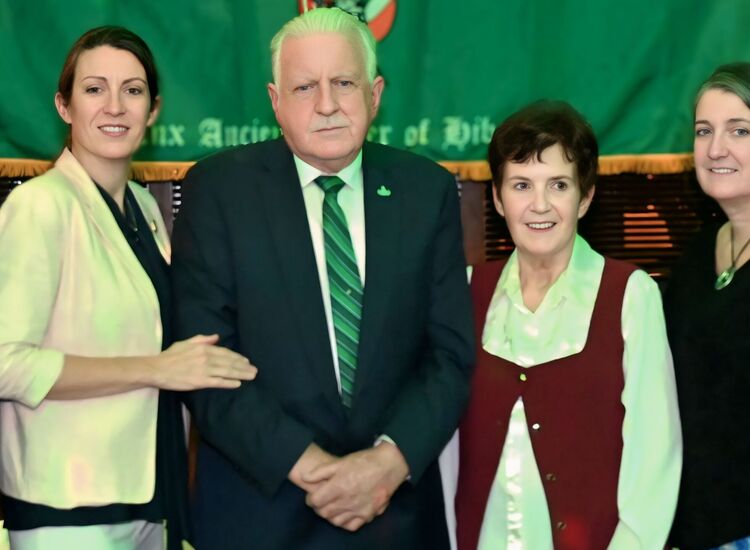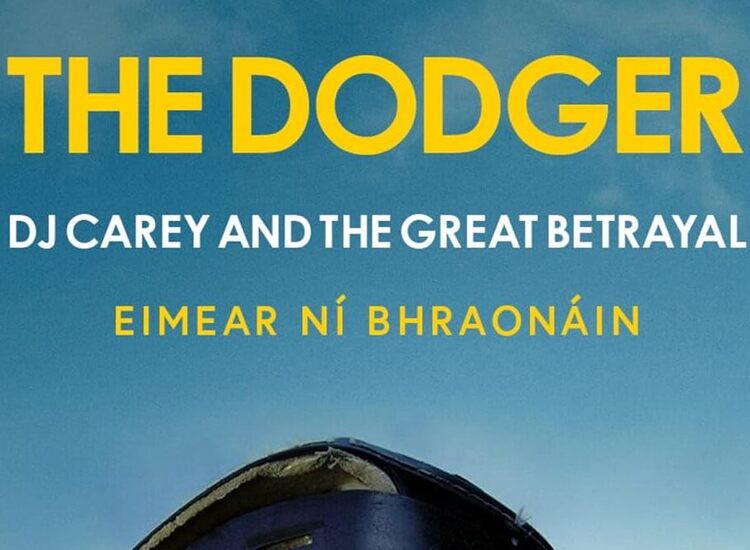The Rev. James Martin S.J. PHOTO: NUTOPIA
Back in 1988, young corporate executive James Martin surprised family and friends with his announcement that he was joining the Society of Jesus. The Wharton School of Business graduate told of his decision and his early days as a Jesuit novice in “In Good Company,” and several bestselling books have followed in the years since, such as “My Life with the Saints,” “Lourdes Diary,” “A Jesuit Off-Broadway,” “Between Heaven and Mirth,” “The Jesuit Guide to Almost Everything” and “Jesus: A Pilgrimage.” Fr. Martin, who appeared on Comedy Central’s “The Colbert Report” several times during its nine-year run, is editor-at-large with the Jesuits’ weekly magazine America. The Irish Echo put some questions to him about “The Abbey,” his recently published first novel.
First of all, Fr. Jim, tell us something about your novel “The Abbey.”
It's the story of Anne, a divorced woman who is grieving the loss of her son, who died three years before the story begins. Down the street from her, in her neighborhood in suburban Philadelphia, lives a handyman named Mark, who works at a local monastery. One day Mark picks her up after her car breaks down and stops off at the monastery. While they are there, she meets the abbot, or head, of the monastery, named Father Paul. This begins a relationship in which she finds spiritual healing and comfort through her conversations with the abbot. It's really the story of how the three of them--Anne, Mark and Father Paul--come to experience God in a new way, through each other.
You have been a very successful non-fiction writer for many years now. Has an ambition to write a novel always been there?
Not at all. Funny enough, I know a few novelists and I've always wondered how they went about writing. Where do the stories come from? Did they simply sit down and write down, "Once upon a time" on their computer and stare at a blank screen? But one early morning I had a dream that woke me up – the story of Anne, Mark and Father Paul, almost fully formed. I scribbled down some notes and the next day started writing. So at least one answer to "Where do the stories come from?" is: a dream.
People who write fiction say that the characters sometimes go in their own direction and the writer must follow. Was that the case with you?
Yes. Although in the dream it was clear where the characters were going. But once you start writing you find that the characters become more real. It's odd to say but I really started to like the characters the more I wrote. I wanted to spend time with them. And the more I "got to know them" the more it was obvious what they would say and do.
How different an experience, more generally, has it been to writing your other books?
It was an entirely different experience. My other books have been, as you mentioned, non-fiction, mainly spirituality. So first off, I would write in my own voice. The "I" was me. In the novel, it's not "me," it's the omniscient narrator. So that was quite different. Second, and more basically, there was far less research to do, and far less worrying about getting things "right." It's fiction after all. My last book, which was on Jesus, took a great deal of time and effort. When you write about Jesus, you have to return to the original Greek texts of the Gospels, consult rafts of scholarly books on what life was like in first-century Palestine and provide sourcing for your work. But in this book there was none of that. It was a much freer process. I joked to my friends: No Greek, no research, no footnotes!
We have to ask: Is there anything in “The Abbey” that would have had it banned in Ireland before about 1965?
Nothing at all. On the other hand, despite being an Irish American, I'm not sure what would have been "bannable" in 1965. Some of the characters curse a little when they're angry, because that's how some people speak these days. But there are no "F-bombs." Also, there is – spoiler alert – no sex, but both Mark – especially – and Father Paul – not as much – are attracted to Anne. So while the book touches on their sexuality, the characters don't jump into bed with one another. In Father Paul's case, he's faithful to his vows. But in Anne's case, she's still recovering from her ex-husband's infidelity, and so she's cautious around Mark, who has a crush on her. I thought it was truer to Anne's character that she wouldn't want to get mixed up with someone irresponsible again.
The Philadelphia Inquirer reviewer said your novel is a “new and improved version of those 18th-century philosophical tales such as Voltaire’s ‘Candide’ or Dr. Johnson’s ‘Rasselas.’” An improvement upon Voltaire and Dr. Johnson? We’re impressed. Have you been happy with the critical response so far?
Yes, I have, though to be honest I had to look up "Rasselas." But people have enjoyed the book, which makes me happy. Essentially the book is a kind of parable, and people have been finding their own meaning in it: for some it's about healing, for others it's about God, for others about how we heal each other. So that makes me very happy. I feel like the dream was given to me, in a sense, to help other people.
What’s your next project?
In February I have a book coming out called "Seven Last Words," based on the sermons I gave last year at St. Patrick's Cathedral in New York on Jesus's last words on the Cross. And I'm currently working on a fictionalized memoir of the Apostle Nathanael. He's the one who, when he was told that the Messiah was Jesus of Nazareth said, "Can anything good come from Nazareth?" So he has a good sense of humor and can help us come to know Jesus in a different way. And since there's almost nothing known about Nathanael, I can be very free with it. And so far I'm having lots of fun with it. Every morning I pray to Nathanael for help!
As told to Peter McDermott.









